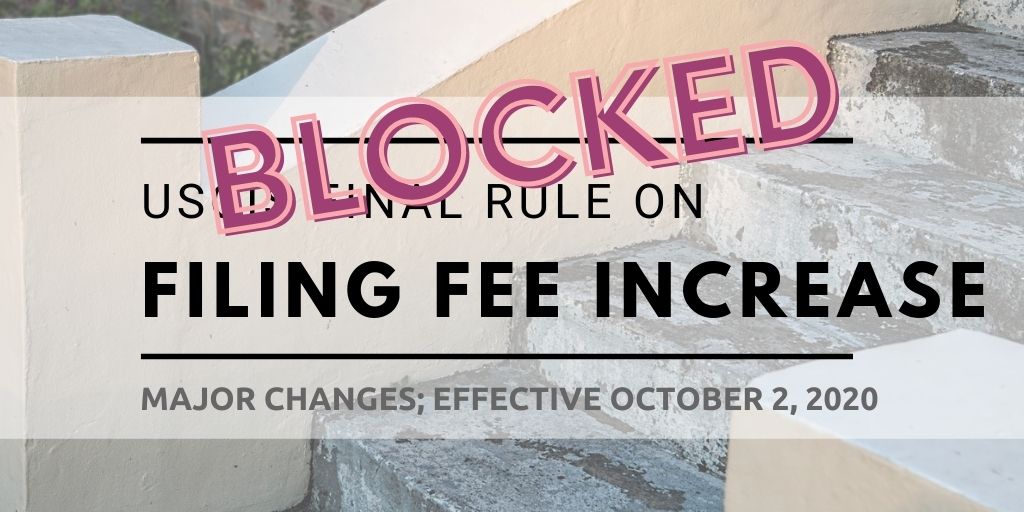USCIS Filing Fee Increase Blocked by Federal Court
On September 29, 2020, a district court blocked the effective date of the August 2020 Final Rule, which sought to increase the fees (significantly in many cases) for many immigration services in addition to requiring revised forms. See ruling.
As a result, the current fee schedule and the current version of the relevant forms continue to remain in effect.
It is likely that the government will appeal this decision; however, unfortunately, it is impossible to say with any certainty how long the rule will remain blocked. The government has up to 60 days to appeal the decision.
Conclusion
Many of our readers and especially those who are frequent filers (corporate clients, mainly) should use this opportunity to file before any subsequent litigation allows USCIS to implement the fees and the revised forms.
We urge our clients to consider making plans to file any upcoming applications soon. We invite you to subscribe to our free weekly immigration newsletter to receive timely updates on this and related topics. We also invite you to contact us if our office can be of any assistance in your immigration matters or you have any questions or comments about the 2020 USCIS fee increase.
Related News and Articles
The Capitol Immigration Law Group has been serving the business community for over 15 years and is one of the most widely respected immigration law firms focused solely on U.S. employment-based immigration. Disclaimer: we make all efforts to provide timely and accurate information; however, the information in this article may become outdated or may not be applicable to a specific set of facts. It is not to be construed as legal advice.

